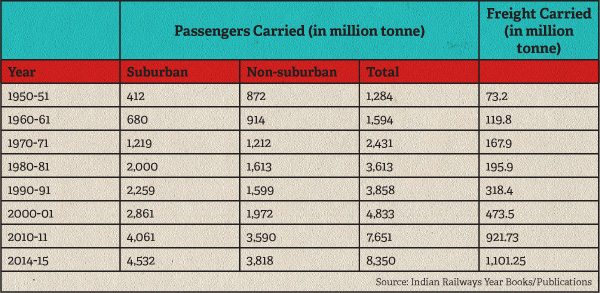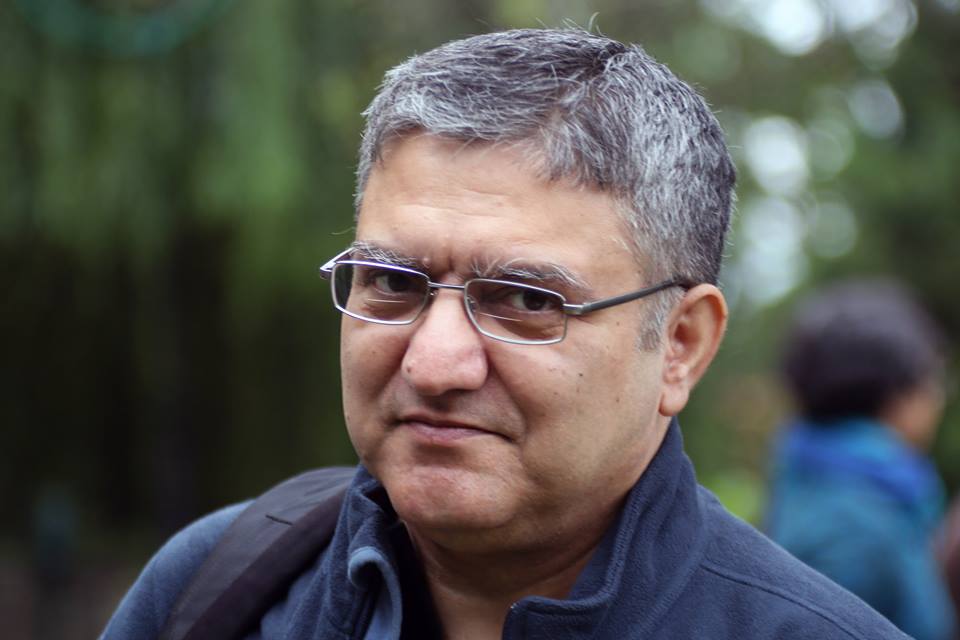To get the railways going, Mr Prabhu, take an axe to 'new projects shelf'

Indian Railways
- The institution is now old and humongous
- Critical areas: labour, management, leadership
Its mandate
- There\'s a debate: whether it is public good or commercial obligation
- The boundary in between isn\'t clearly drawn
More in the story
- What should the long-term focus be?
- Why the railway can\'t move slow?
To comment on an institution it is essential first to define its principal features: good, bad and indifferent.
It is a truth universally acknowledged that the Indian Railways constitute a huge and old established enterprise. What is all too often forgotten, however, is that large size and old age often result in a loss of agility and speed of movement, fixed and rigid structures and processes, deeply entrenched vested interests and a comfortable equilibrium between various power centres.
In the context of the railways these are organised labour, professional management and political leadership.
In addition, the railways are a rich source of political patronage: big projects of all sorts have to be awarded to favoured constituencies of all sorts -- a lot of pork chopping to be done. Finally, unlike most organs of the state in India, the Railways actually perform despite chronic underinvestment, inadequate capacity, stressed assets and the unrealistic expectations of a segment of the ruling and chattering classes.
Read- Prabhu of small things: positive steps, but railways need huge reform & funding

The higher echelons of government are normally far removed from the realities of life in the field. Their job is to deliberate at Davos and procrastinate on policy decisions in Lutyen's Delhi, not worry about the functioning of employment guarantee schemes in Jharkhand or malnutrition in Hamirpur-Banda.
The railways are the one exception to this rule of Indian governance -- the policy maker's link to and responsibility for field performance is direct and close.
While a great deal of time and energy is dissipated in patronage seeking, internecine warfare and departmental empire building, there's no gaping chasm between the rarified world of ministry and the hard realities of field operation.
For its size it is a reasonably tightly coupled organic entity, not a loose agglomeration of independently functioning power centers. This gives a strength that can be leveraged, if desired, for serious change.
public good vs business sense
A critical vulnerability of the system must be highlighted here. If the Railways are a 'commercial entity with public service obligations' where does 'public service' end and commercial orientation begin?
As happens with many serious questions, no clear answer exists, no boundaries are drawn, no definitions formulated and the old joke about 'Whereas it is expedient to provide.' applies.
When budgetary support from the central government is asked for 'commercial orientation' is talked about, when fares and freight hikes are thought of or resources for financially un-remunerative projects are asked for 'public service obligations' are highlighted.
A direct consequence of this ambiguity is that Railway finances are always precariously balanced. An additional issue here is that Railway accounting systems pay no homage to modern commercial accounting systems and practices; and yet the organization is supposed to be a 'commercial' entity!
Many committees and budget speeches have talked about reforming the accounting system but it has not happened yet.Talk of 'alternative sources' of finance can bear serious fruit only when balance sheets exist and reliably reflect financial realities. Relying on the 'security' of being a government entity and therefore being a good credit risk can take the organization only so far.
Read more: How not to crash the Indian Railways. The Bibek Debroy Report explained
This is aggravated by fact that that Railways have few friends in government -- those duly anointed to manage the Government do not, as yet, run the Railways and so cannot be expected to look at the organization's needs with any degree of sympathy. Huge sums can be poured into the black holes of loss making public sector units -- Air India is a significant example here -- but the Railways must be 'financially viable'!
The Railways, too, must bear significant responsibility for the circumstances they find themselves in. As the Hon. Minister declared in the last Budget speech, '...chronic underinvestment in the Railways.has led to congestion and over utilization.
As a consequence capacity augmentation suffers, safety is challenged and the quality of service delivery declines...' Inadequate capacity, stressed assets and all the consequences thereof have been bemoaned for years now by various august authorities, but the Railways continued to build up a huge shelf of investment projects, introduce new trains and open up new avenues for expenditure. The last Budget even mentioned a proposal to set up a full-fledged University!
Also read- Modi govt may spend $95 billion on Indian railways over 5 years: Morgan Stanley
Political compulsion, bureaucratic complaisance and sheer hubris have over the years, ensured enormous waste of scarce investible resources. The present dispensation has, it is said, taken a strong stand on the vexed issue of new projects, but what is called for is to take an axe to the 'shelf', 'smash it to bits and rebuild it nearer to the' railways immediate and emergent requirements.
This would require ignoring the anguished cries of many vested interests both internal and external and abandoning the comforting, balanced and mature incrementalism that characterizes the 'business as usual' that the Budget speech railed against.
What to do
With just a little push the Railways deliver to a certain extent year on year. Some trains get added, revenue earning freight increases -- though not perhaps to the extent projected for 2015-16 -- and Information Technology adds customer friendly dimensions to erstwhile unfriendly processes like ticketing, refunds etc.
The system can take a great deal of stress and besides, some capacity and safety works do somehow get completed every year and shore up the crumbling system. With 'business as usual' life is comfortable, no apple carts are upset and all important constituencies, political and administrative, are appeased. All is well, for a while at any rate!
Also read- #NotesforMrJaitley 4: five things he must focus on in the Health Budget
If however, the long-term interests of the organisation are to be looked after, gradualism will not do. Not only has an axe to be wielded on all expenditures, especially the notorious 'shelf' but the selfsame instrument has to dangle over the heads of those responsible for project implementation.
All that a project can absorb in a given period should be allocated and then implementation demanded. The philosophy of 'sanction everything and complete nothing very much' has to be destroyed root and branch. Accountability cannot be confined to day to day operational failures alone.
It is useful to remember the Guru's words here (Guru Gobind Singh, Dasham Granth)
देह शिवा बर मोहे ईहे, शुभ कर्मन ते कभुं न टरूं
न डरौं अरि सौं जब जाय लड़ौं, निश्चय कर अपनी जीत करौं,
A prior requirement for victory is courage and strong resolve but such resolve is difficult, the cost attached is very high.
(The views expressed here are personal and do not necessarily reflect those of the organisation.)
More in Catch:
RSS man hacked to death: is Kannur heading for another cycle of violence?
Fashion lessons from the Grammy's: how rocktstar style differs from moviestar
Umar Khalid is no jihadi. BJP is pushing him the Rohith way
At the mercy of the elite: 25% quota for poor in pvt schools doesn't work
First published: 17 February 2016, 7:05 IST





![BJP's Kapil Mishra recreates Shankar Mahadevan’s ‘Breathless’ song to highlight Delhi pollution [WATCH] BJP's Kapil Mishra recreates Shankar Mahadevan’s ‘Breathless’ song to highlight Delhi pollution [WATCH]](https://images.catchnews.com/upload/2022/11/03/kapil-mishra_240884_300x172.png)

![Anupam Kher shares pictures of his toned body on 67th birthday [MUST SEE] Anupam Kher shares pictures of his toned body on 67th birthday [MUST SEE]](https://images.catchnews.com/upload/2022/03/07/Anupam_kher_231145_300x172.jpg)





_in_Assams_Dibrugarh_(Photo_257977_1600x1200.jpg)
